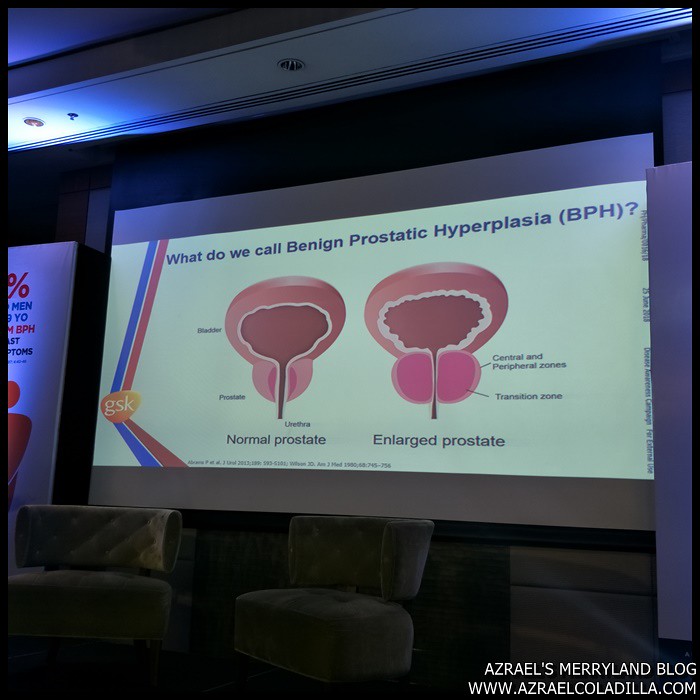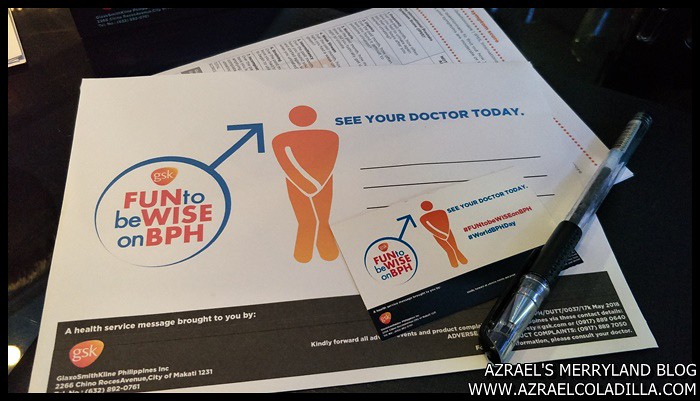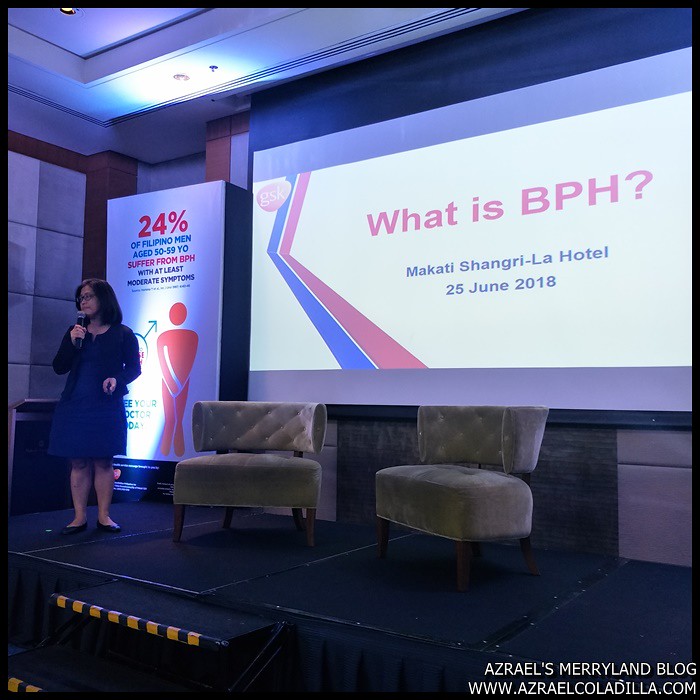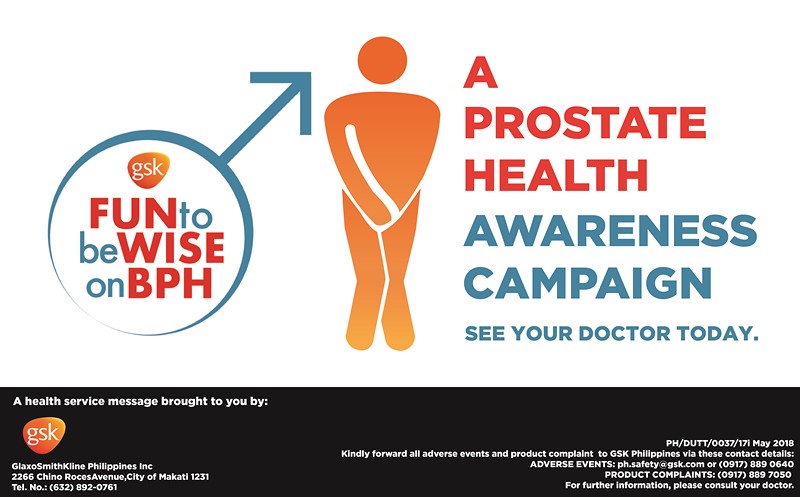
Here’s a very interesting topic, all men should be aware that we are at risk to have BPH when we reach old age. I’m glad that its a curable disease and the only way to fight it is to see a doctor if symptoms have been felt. Below are some information about BPH that I lifted from the GSK forum last week.
BPH means Benign Prostatic Hyperlasia, its a prostate problem of men aged 50 and above, its a common disease that causes the prostate to increase in size as man ages. The effect of BPH is it lead to AUR or acute urinary retention, if a doctor detect its early stage, there's a way that it can be cured by medicine, but if not, patients with BPH will require surgery.
GlaxoSmithKline Philippines (GSK), a global leading healthcare company is advocating and pioneering the World BPH Day, they launched it last June 25th, and their advocacy and campaign is about the "Fun to be WISE on BPH", an advocacy to raise awareness about the disease and help improve the quality of life of Filipino men.
BPH is not malignant or a cancer, its a prostate health problem that the prostate starts to grow bigger and it tightens the urethra and it blocks the flow of urine and the result is a very painful urination and also a cause of sleep disrupton and sexual dysfunction. If not treated early and properly, old men with BPH can no longer urinate and will be forced to use a catether to flush out the urine. If not treated well, men with BPH can develop kidney and bladder problems and also urinary tract infection.
World BPH Day want to address that men should not be embarassed to go visit a doctor, men with ages 50 and above are at risk of acquiring BPH, with early detection by knowing the symptoms first, everyone can avoid getting a surgery and can recover from medical treatment, yes there’s a drug already that can help reduce the size of the prostrate.
GSK shared this FUNWISE acronym based on the(IPSS) International Prostate Symptom Score, its a symptoms chart to know if men acquire the BPH problem.
F for Frequency - Over the past two months, how often have you had to urinate two hours after you finished urinating?
U for Urgency - Over the past month, how often have you found it difficult to postpone urination?
N for Nocturia - Over the past month, how many times do you typically get up at night to urinate?
W for Weak Stream - Over the past month, how often have you had a weak urinary stream?
I for Intermittency - Over the past month, how often have you found yourself to have stopped and started again while you were urinating?
S for Straining - Over the past month, how often have you had to push or strain to begin to urinate?
E for Incomplete Emptying - Over the past month, how often have you had a sensation of not emptying a bladder completely after you finish urinating?
Here are the common symptoms of BPH, if you feel that you’ve experienced all or some of the symptoms, I suggest go out now and visit a doctor.
1. Difficulty while urinating
2. Straining while urinating
3. Dribbbling at the end of the urination
4. Inability to completely empty the bladder
5. Weak urine stream or a stream that stops and starts
6. Frequent or urgent need to urinate
7. Increased frequency of urination at night (nocturia)
Some less signs and symptoms
1. Urinary tract infection
2. Inability to urinate
3. Blood in the urine
During the forum and Q and A, I learned that all old men can acquire BPH, there are no prevention to it and even if men are sexually active or ejaculating every day, men can still acquire the disease when they reach old age, and that’s because men have prostate gland.






















